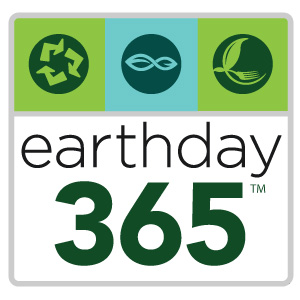2012 Symposium Workshop Agenda
CLICK HERE TO DOWNLOAD THE AGENDA
Technical Workshop Agenda
Friday April 6, 2012
Spink Pavilion, Missouri Botanical Garden
Presented by the Missouri Department of Conservation and East-West Gateway Council of Governments
8:00 – 8:30 Registration and Breakfast
8:30 – 8:45 Welcome and Introduction
J. Tracy Boaz, AICP, Regional Supervisor, Private Land Services Division, Missouri Department of Conservation & St. Louis Earth Day
8:45 – 10:30 Session 1
- David Diamond, PhD, Director, Missouri Resource Assessment Partnership and Diane True, Missouri Resource Assessment Partnership, How to Use the Landcover and Natural Communities Database
- Jennifer Reiman, GIS Manager, East-West Gateway, Practical Uses in the St. Louis Region
Moderator: Mary Grace Lewandowski, Corridor Studies Coordinator, East-West Gateway
A discussion of how to use the information now available that outlines regional and project-level ecological significance in the St. Louis region, and which was modeled based on information about habitat patch size, community type composition, and landscape context (e.g. proximity to urban areas or public lands). Important data layers developed include current vegetation, which was modeled from satellite remote sensing, digital soils data, and data from digital elevation models; extant wetlands; and wetland restoration potential. New elevation and tree height data from LiDAR informs wetland type mapping and is used to create fine-resolution digital elevation models to inform wetland restoration potential.
10:30 – 10:45 Break
10:45 – 12:00 Session 2
- Jennifer Kuntz, Solution Engineer, Environmental Systems Research Institute (Esri) – St. Louis, Sharing Sustainability Data with the Web
- Kim Andrews, P.E., Account Executive, Water Utility Practice and Joan Steurer, Project Manager and Consultant for the Solutions Implementation team, Environmental Systems Research Institute (Esri) – St. Louis, Improve the sustainability of project construction by leveraging modern planning tools
Moderator: Roland Biehl, Metropolitan St. Louis Sewer District
Web-based Geographic Information Systems (GIS) provide an excellent tool for sharing and collaboration related to conservation and sustainability projects. Learn how you can easily create and share web maps with your data and see examples of web mapping applications that share information on renewable energy, green buildings, and more.
The Greater St. Louis community is supported by a complex network of elaborate systems superimposed over one another, providing essential services such as water, gas, electricity, and communication as well as transportation of goods and people. When a change is made to any part of these labyrinths, it can affect performance of all of the systems. Disruptions cause wasted resources. This can mean anything from excessive lost personal time on a lengthened commute to hundreds of thousands of dollars of wasted materials and labor due to projects that must be reconstructed well before their life-cycle is up. It has long been recognized that careful planning of capital projects is important to the overall success and cost effectiveness of the projects. However, when the planning process involves multiple organizations, each with multiple projects spread over a large geographic area, coordinating the planning process itself can become problematic. With a common interface leveraging location visualization and modern communication tools, the planning process is greatly simplified. GIS can enable a common planning platform for all interested parties.
12:00 – 12:30 Lunch
12:30 – 1:30 Lunch Plenary – GIS Foundations and Futures: A Forty-Year Perspective
- Introduction by David Wilson, East-West Gateway Council of Governments
- Stephen Kinzy, GISP, Regional Manager, Environmental Systems Research Institute (Esri) – St. Louis
After forty years we have learned a great deal about what works and what doesn’t work implementing GIS. This presentation will explore some of the significant developments in GIS over the last 40 years, and will identify some important future trends.
1:30 – 2:00 Networking
CLICK HERE TO VIEW THE SYMPOSIUM AGENDA
REGISTRATION IS NOW CLOSED. TICKETS MAY BE PURCHASED AT THE DOOR:
Both Days: $150 | Conference Only (Thursday): $110 | Workshop Only (Friday): $75

